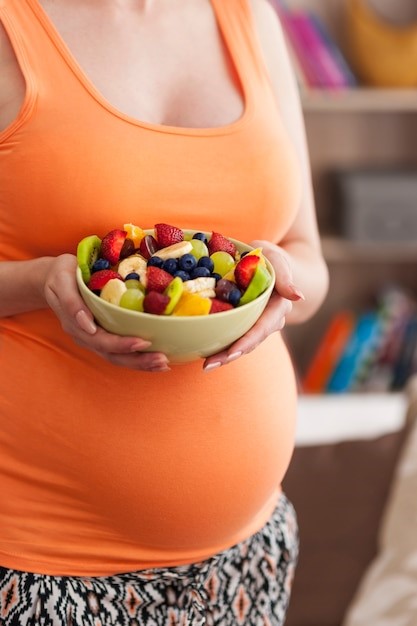Pregnancy is a crucial time when proper nutrition becomes even more vital for the health and well-being of both the mother and the developing baby. Consuming a well-balanced diet rich in essential nutrients is essential to support the growth and development of the fetus and maintain the mother’s overall health. This article aims to highlight the essential nutrients that pregnant women in South Africa should focus on to ensure a healthy pregnancy.
- Folic Acid:
Folic acid, also known as folate, is a B-vitamin that plays a critical role in fetal development, particularly in the early stages. Adequate folic acid intake helps prevent neural tube defects in the baby’s brain and spinal cord. Pregnant women should consume foods rich in folate, such as leafy green vegetables (spinach, kale), legumes (beans, lentils), citrus fruits, fortified grains, and supplements as recommended by their healthcare provider.
- Iron:
Iron is necessary for the production of red blood cells that carry oxygen to the baby and the mother’s tissues. During pregnancy, the body requires more iron to support the increased blood volume. Iron-rich foods include lean meats, poultry, fish, legumes (beans, lentils), tofu, fortified cereals, and dark leafy greens. Pairing iron-rich foods with vitamin C-rich foods, like citrus fruits or bell peppers, helps enhance iron absorption.
- Calcium:
Calcium is essential for the development of the baby’s bones, teeth, muscles, and nerves. If a pregnant woman does not consume enough calcium, the baby will draw it from the mother’s bones. Good sources of calcium include dairy products (milk, cheese, yogurt), fortified plant-based milk alternatives, tofu, dark leafy greens (kale, broccoli), and canned fish with bones (salmon, sardines).
- Omega-3 Fatty Acids:
Omega-3 fatty acids, particularly docosahexaenoic acid (DHA), are crucial for the development of the baby’s brain and eyes. Pregnant women should aim to include sources of omega-3 fatty acids in their diet, such as fatty fish (salmon, sardines), walnuts, chia seeds, flaxseeds, and algae-based supplements.
- Protein:
Protein is essential for the growth and repair of tissues in both the mother and the developing baby. It is necessary for the development of the baby’s organs, muscles, and immune system. Good sources of protein include lean meats, poultry, fish, eggs, legumes, nuts, seeds, and dairy products or plant-based alternatives.
- Vitamin D:
Vitamin D aids in the absorption of calcium and promotes the baby’s bone development. It also supports the mother’s immune system and overall health. While sunlight is a natural source of vitamin D, it can be challenging to obtain adequate amounts through sunlight alone. Dietary sources of vitamin D include fatty fish (salmon, mackerel), fortified dairy products, fortified plant-based milk alternatives, and supplements as advised by healthcare professionals.
- Vitamin C:
Vitamin C is important for the development of the baby’s connective tissues and helps the mother’s body absorb iron from plant-based sources. Citrus fruits (oranges, grapefruits), strawberries, kiwi, bell peppers, and tomatoes are excellent sources of vitamin C.
- Fiber:
Fiber aids in digestion, prevents constipation, and helps maintain stable blood sugar levels. Pregnant women should consume fiber-rich foods such as whole grains, fruits, vegetables, legumes, nuts, and seeds.
A well-balanced diet that includes essential nutrients is vital for a healthy pregnancy in South Africa. Focusing on folic acid, iron, calcium, omega-3 fatty acids, protein, vitamin D, vitamin C, and fiber can provide the necessary building blocks for the baby’s growth and development, support the mother’s well-being, and reduce the risk of complications. However, it is important for pregnant women to consult with their healthcare provider or a registered dietitian for personalized advice and to ensure they meet their specific nutrient needs during pregnancy.










